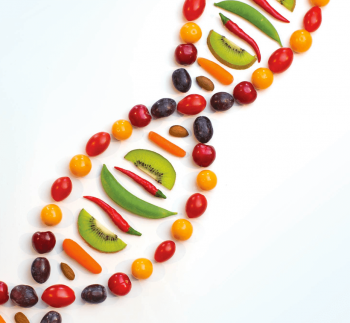Virtual Workshop - Foundational Principles of Translational Nutrigenomics
Virtual Workshop
Foundational Principles of Translational Nutrigenomics
Please click HERE to access workshop content
Description: Nutritional Genomics is a complex and valuable part of our work in nutrition. This session is an overview of what nutritional genomics entails, from exploring the key foundational principles that all practitioners need to know when working with genetics in their practice, to determining what will stand out as nutrigenomic science you can trust. We discuss a number of genes and interrogate them to determine their clinical value.
In the second part of this session, we explore the history of nutrigenomic testing as well as the successes and failures of the nutrigenomic industry, identifying problems that exist for both the patient and practitioner. We can then start addressing the clinical translation and implementation of nutrigenomics. We finish off with the Genes 1st and translational frameworks that you can use in your practice and explore these frameworks with real-life case studies.|
- This session will be recorded – access ends Sept 30th!
- 4 CPEs pre-approved for RDNs

Here’s what we’ll cover:
PART 1: Foundational Principles of Nutrigenomics
- Upstream nutrition
- Genetic variation
- Penetrance
- Nutrigenomics vs nutrigenetics
- Pathways and polygenic risk scores
- Epigenetics and daily choice
- H=G=C
PART 2: Nutrigenomic Science You Can Trust
- Not all SNPs are equal
- Clinical and scientific utility
- Frequency
- Study quality
- Biological plausibility
- Pathway impact
- Clinical impact
- Intervention
- Biomarkers
- Changing decision making
PART 3: Interrogating genes to determine their clinical nutrigenomics value.
- GSTM1
- LCT
- APOE
- ACE
- TNFA
- MTHFR
- HFE
- NQ01
- COMT
PART 4: Evaluating the Nutrigenomics market place
- What did the last two decades deliver?
- The MTHFR bump in the road
- SNPs vs pathways
- SNP-based treatments
PART 5: Translational Nutrigenomics Frameworks and case studies
- Genes 1 st
- Know where to start
- 6 step approach for clinical integration
- 3X4 framework for recommendations
- Case studies
Learning Objectives/Practice Exercises:
- Define and explore the key foundational principles of genetics including basic terminology and concepts
- Define epigenetics, the role of DNA methylation and daily choice
- Describe the difference between nutrigenomics vs nutrigenetics
- Identify nutrigenomic diet-gene interactions
- Define the elements of scientific validity and clinical utility as foundational principles for building science we can trust.
- Identify a number of genes and SNPs including: MTHFR, APOE, COMT, CETP, TNFα, PPARG, CYP1A1, GST and their clinical relevance
- Identify the nutrigenetic tests being offered by the genetic testing market place
- Be able to evaluate the clinical usefulness of genes and SNPs you will encounter in genetic test reports
- Understand the polygenic risk score as an objective methodology
- Identify areas in which we have failed and succeeded with nutrigenomics
- Identify the solutions that can improve the industry, as well as the value of nutrigenomics to the patient and practitioner.
- Understand the value of Genes 1 st in using genetics in practice
- Be able to use the 6 step approach and 3X4 clinical prescription for integrating genetics into practice
Your Presenter: Dr. Yael Joffe
 In her role as 3X4 co-founder and Chief Science Officer, Dr Yael Joffe brings over 20 years of experience in nutrigenomics, nutrition, genetics, sound research, clinical practice and scientific integrity to 3X4.
In her role as 3X4 co-founder and Chief Science Officer, Dr Yael Joffe brings over 20 years of experience in nutrigenomics, nutrition, genetics, sound research, clinical practice and scientific integrity to 3X4.
In the rapidly-evolving discipline of nutrigenomics, Yael is globally acknowledged as a leading expert in the field. She is a highly sought-after speaker, has co-authored two books, ‘It’s Not Just Your Genes’ and ‘Genes To Plate’, and has been published in multiple peer-reviewed scientific journals.
Yael is at the forefront of nutrigenomic education and has helped develop and supervise nutrigenomics courses around the world, including her own Manuka courses, which have trained hundreds of healthcare practitioners globally. She is currently an Adjunct Professor, teaching Nutrigenomics at Rutgers University and MUIH.
